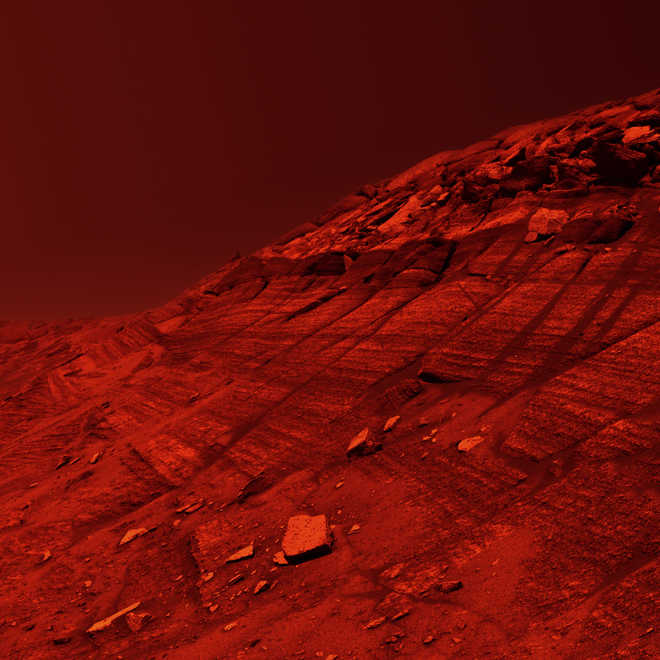
Photo source: Thinkstock
London
The Martian atmosphere is well protected from the effects of the solar wind, despite the absence of an Earth-like magnetic dipole, a study has found.
Present-day Mars is a cold and dry planet with less than one per of Earth's atmospheric pressure at the surface.
However many geological features indicate the planet had an active hydrological cycle about 3-4 billion years ago.
An active hydrological cycle would have required a warmer climate in the planet's early history and therefore a thicker atmosphere, one capable of creating a strong greenhouse effect.
A common hypothesis maintains that the solar wind over time has eroded the early Martian atmosphere, causing the greenhouse effect, and thus the hydrological cycle, to collapse.
Unlike Earth, Mars has no global magnetic dipole, but the solar wind instead induces currents in the ionised upper atmosphere, creating an induced magnetosphere.
"It has long been thought that this induced magnetosphere is insufficient to protect the Martian atmosphere," said Robin Ramstad from Umea University in Sweden.
"However our measurements show something different," Ramstad said.
Researchers using measurements from the Swedish particle instrument ASPERA-3 on the Mars Express spacecraft.
The spacecraft has been measuring the ion escape from Mars since 2004. Researchers combined and compared measurements of the ion escape under varying solar wind conditions and levels of ionising solar radiation, so-called extreme ultraviolet (EUV) radiation.
The results show that the solar wind has a comparatively small effect on the ion escape rate, which instead mainly depends on the EUV radiation.
This has a large effect on estimations of the total amount of atmosphere that has escaped to space.
"Despite stronger solar wind and EUV-radiation levels under the early Sun, ion escape can not explain more than 0.006 bar of atmospheric pressure lost over the course of 3.9 billion years," said Ramstad.
"Even our upper estimate, 0.01 bar, is an insignificant amount in comparison to the atmosphere required to maintain a sufficiently strong greenhouse effect, about one bar or more according to climate models," he said.
The findings show that a stronger solar wind mainly accelerates particles already escaping the planet's gravity, but does not increase the ion escape rate.
Contrary to previous assumptions, the induced magnetosphere is also shown to protect the bulk of the Martian ionosphere from solar wind energy transfer. PTI


























